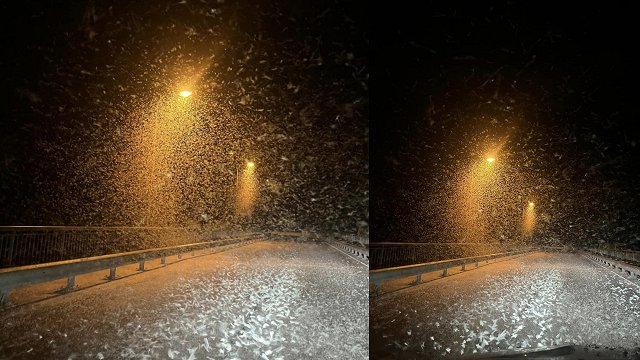The development of the Skanste area has long been debated regarding how much it concerns the city, and how much the private developers. After a proposed tram line project failed, which would have improved access to this neighborhood, Rīga decided to invest its own and European funds into the development of Skanste. It is already clear that the project will cost more than planned.
“In my view, it's absolutely clear that the new park is better than some old gardens, isn't it?!” the former head of the Development Committee of the Riga City Council, Aleksejs Rosļikovs (For Stability!), said.
The park and the new streets, with a total area of 19 hectares, should be finished by now. But the neighborhood is still enclosed, and there is nothing behind it. Construction works started in 2020, but in autumn 2021 it was revealed that the newly constructed streets of Rīga and the underground communications network were starting to subside.
"The building contractor had some suspicions, performed repeated measurements, and found that these wells had subsided. We started taking regular measurements, and it was also concluded that the process of settling would continue," the responsible building supervisor, Renārs Birniks, told the broadcast.
Last autumn, works were suspended. Children's squares and skateparks have become overgrown with weeds. An expert examination concluded that what was built in some places could continue to sink, which in turn would mean that at least some of the engineering efforts will no longer be used.
After receiving a report, the city spent more than half a year thinking about what to do about the problem.
Investing several million more in work at once, in the hope that it will help, would be costly and risky. It was finally decided to split the project into two rounds, one that can be completed by the second half of next year, and the rest left for “natural consolidation”.
“The natural consolidation, in simple words, is that we then add on extra soil [..] and let the bottom naturally settle. And that process could take about five years,” said Dagnis Samausks, Head of the Project Management Board of the RD City Development Department.
The contract with the contractor was renewed a week ago, in the last days of October, when the construction season was nearly over. If the jobs were to be done by the end of next year, it would be possible to receive the planned co-financing from European funds. The amount of aid envisaged is half the cost. However, before paying out all the aid, it will also assess what has been achieved in the project.
Jānis Bidzans, chairman of the board of the design firm BRD Project, points out that elsewhere, under similar circumstances, the solutions now selected in Skanste had worked, and so their project could not be at fault. The works were entrusted to an association composed of RR Nord, Eko Port and Baltic Construction. Vladimirs Zommers, board member of RR Nord, stresses that they had not participated in the design and therefore cannot take responsibility for the shortcomings in the construction project.
It is expected that the work that has already been done and needs to be done in the near future will cost around €13 million, which is about two million less than previously agreed. However, a further five to seven million euro will be needed to complete everything as originally planned, according to estimates. Moreover, it is not yet known how much of the infrastructure already invested will need to be replaced in a few years' time. “This is why we have ordered an expert examination, and accordingly, from these results, we will then react,” said Rīga Vice Mayor Vilnis Ķirsis.
It is not the only problem that haunts this project. The municipality, when it launched the idea of this project, owned less than half of the entire 19-hectare area. In four years, all ownership issues have still not been resolved. The city has failed to acquire plots belonging to the family of controversial former insolvency administrator Māris Sprūds. "The land must be owned by the municipality by the end of the project. And, yes, this is the stage where we are still waiting for the Property Department to take action to make these last steps," said Dace Vilaua, Deputy Head of the Project Enforcement Division of the Riga City Development Department.
The major oil pollution that occurred during the works was also a headache. An additional agreement was reached with the builder to clean up the soil. However, the State Environmental Service suspected that part of the contaminated soil had reached Kalngale, Carnikava municipality. Criminal proceedings were initially launched, but later terminated. The builder points out that the soil removed there has not contained pollution, as evidenced by proper analysis. The Environmental Service is continuing its investigation.




























